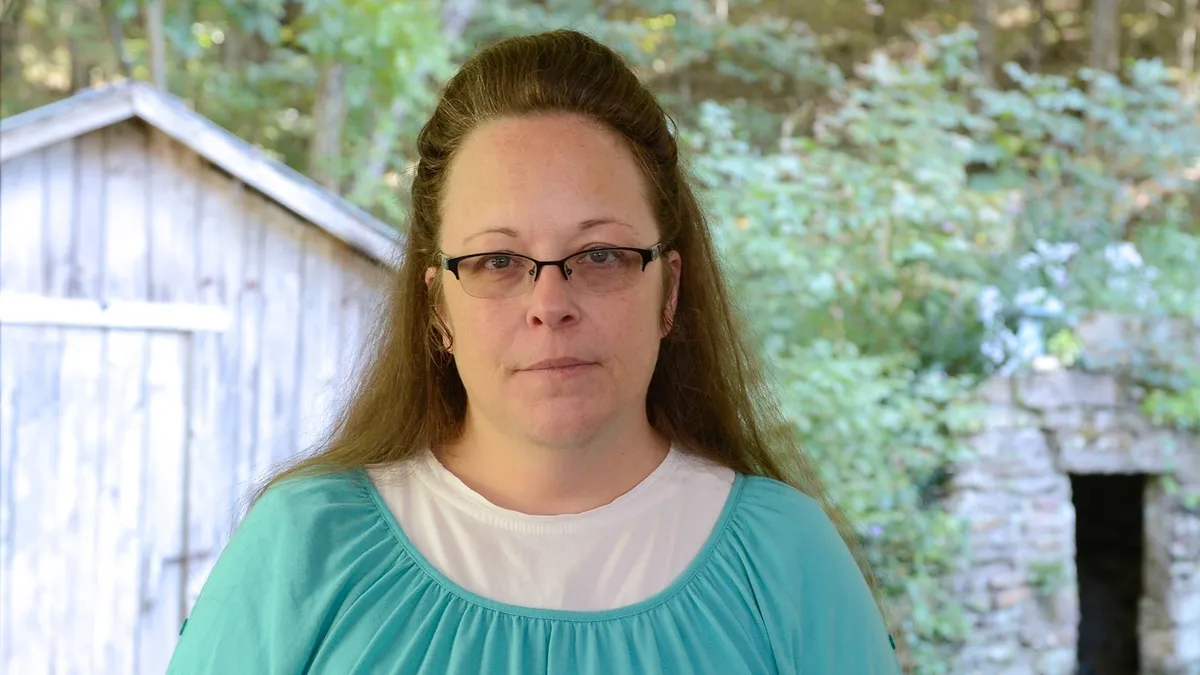
Ten years after the landmark decision in Obergefell v. Hodges, which extended marriage rights to same-sex couples nationwide, the Supreme Court is set to consider a case that challenges this ruling for the first time. This fall, the justices will evaluate a petition by Kim Davis, the former Kentucky county clerk infamous for refusing to issue marriage licenses to a same-sex couple on religious grounds. Davis is appealing a jury verdict that awarded emotional damages of $100,000 and an additional $260,000 for attorney fees.
Davis argues that her First Amendment rights, specifically the protection for the free exercise of religion, shield her from personal liability for denying marriage licenses. More importantly, she claims that the Supreme Court's decision in Obergefell v. Hodges was fundamentally flawed and needs to be overturned. Mathew Staver, Davis's attorney, described Justice Anthony Kennedy's majority opinion in the Obergefell case as "legal fiction" in their petition. This case marks a significant moment, as it is the first formal request since 2015 to reconsider this pivotal ruling.
Davis is currently viewed as one of the few individuals with legal standing to challenge the Obergefell decision. In the petition, Staver emphasizes the exceptional nature of this case, highlighting that Davis was the first person in U.S. history to be jailed for adhering to her religious beliefs about marriage. However, lower courts have consistently dismissed her claims. Most legal experts view her chances as slim, as a federal appeals court previously concluded that she could not use the First Amendment as a defense when being held liable for state actions.
William Powell, representing the couple who sued Davis, stated that not a single judge on the U.S. Court of Appeals showed interest in Davis’s rehearing petition, expressing confidence that the Supreme Court will similarly dismiss her arguments.
Davis's appeal coincides with a renewed effort by conservative groups to challenge marriage rights for same-sex couples. Since the Obergefell decision in 2015, which occurred when 35 states had bans on same-sex marriages, at least nine states in 2025 have introduced legislation aimed at blocking marriage licenses for LGBTQ individuals or have called for the Supreme Court to reverse the Obergefell ruling. The Southern Baptist Convention, the largest Protestant denomination in the U.S., has prioritized the overturning of Obergefell as part of its agenda.
While a significant majority of Americans continue to support equal marriage rights, recent data from Gallup indicates that this support has softened. In 2015, 60% of Americans were in favor of same-sex marriage, which rose to 70% in 2025, but has remained stagnant since 2020. Among Republicans, support has notably declined from 55% in 2021 to just 41% this year.
Davis's petition draws parallels between the marriage rights issue and the abortion debate, referencing Justice Clarence Thomas's 2022 concurrence that called for a reevaluation of Obergefell. Legal experts suggest that if the Supreme Court were to overturn this ruling, it would not invalidate existing same-sex marriages, as the Respect for Marriage Act mandates recognition of these marriages despite any changes in law.
Despite previous attempts to appeal her case in 2019, Davis has faced continuous rejection from the Supreme Court, with conservative justices expressing skepticism about her arguments. As the Court prepares to discuss her petition, the legal landscape surrounding same-sex marriage remains uncertain, with many LGBTQ advocates expressing concern over the potential implications of a rightward shift in the Supreme Court's composition.
The Supreme Court is expected to deliberate on Davis's petition this fall, deciding whether to include it on their docket. If accepted, oral arguments could be scheduled for spring 2026, with a ruling anticipated by the end of June. However, analysts suggest that the justices may prefer to let lower court challenges to Obergefell develop further before revisiting the issue.
In conclusion, as the legal fight over same-sex marriage rights continues, the implications of Davis's case could significantly influence the future of marriage equality in the United States. The evolving public sentiment and the shifting dynamics within the Supreme Court will play critical roles in determining the outcome of this pivotal legal battle.